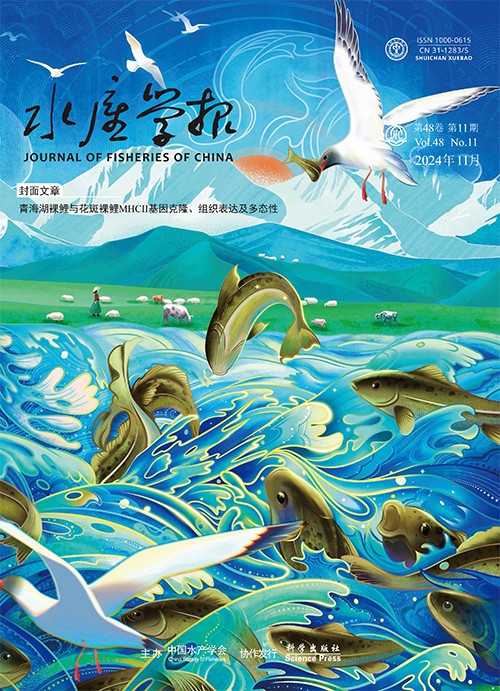Limited subculture and biological characteristic analysis of three cell lines from fat greenling(Hexagrammos otakii)
Q4 Environmental Science
引用次数: 0
Abstract
Fat greenling(Hexagrammos otakii)is one of the important commercial fishes along the northern coast of China,and its artificial breeding and culture have been developed recently.Primary culture of fin,lip and kidney from H.otakii was studied using tissue explant method.Until now cells of three tissues have been subcultured at passage 30 for fin,passage 31 for lip,passage 35 for kidney respectively.The results showed that the fin and lip tissues could be dispersed quickly after being digested with 0.5% hyaluronidase and 0.2% collagenase Ⅱ.The optimal growth conditions for fin,lip and kidney tissues were 20% fetal bovine serum(FBS),5 ng/mL basic fibroblast growth factor(bFGF),20 μg/mL chondroitin sulfate and 40 ng/mL insulin-like growth factor-I to medium DMEM/F12(pH 7.2)at 25 ℃.The doubling time of fin,lip and kindey cell numbers was about 58.7 h,50.4 h and 32.9 h at the 20th passage.Karyotype analysis of 100 metaphase plates revealed that the feature diploid chromosome number was 2n=48 in fin,lip and kidney cell at 25th passage.The cell livability of these three kinds of cell were(84.59±1.07)%,(85.75±1.03)% and(87.39±1.05)%,respectively,when recovered after being stored in liquid nitrogen for 60 d at the 20th.Now,the three kinds of cell have been preserved in China Center for Type Culture Collection(CCTCC).The methods of cell culture in vitro could be used to prevent and cure fish diseases and the pathomechanism study.三种脂绿鱼细胞系有限传代培养及生物学特性分析
黄颡鱼是中国北方沿海重要的商业鱼类之一,近年来在人工养殖和养殖方面发展迅速。采用组织外植体法对御竹鱼鱼鳍、唇和肾进行了原代培养。到目前为止,三种组织的细胞分别在鳍传代30代、唇传代31代、肾传代35代传代培养。结果表明:用0.5%透明质酸酶和0.2%胶原酶Ⅱ消化后,鱼鳍和鱼唇组织均能迅速分散;鱼鳍、嘴唇和肾脏组织的最佳生长条件为:20%胎牛血清(FBS)、5 ng/mL碱性成纤维细胞生长因子(bFGF)、20 μg/mL硫酸软骨素和40 ng/mL胰岛素样生长因子- 1,加入培养基DMEM/F12(pH 7.2), 25℃。第20代时,鱼鳍、唇部和亲缘细胞数倍增时间分别为58.7 h、50.4 h和32.9 h。100个中期板的核型分析表明,鳍、唇和肾细胞在25代时的特征二倍体染色体数目为2n=48。3种细胞在液氮中保存60 d后,20日恢复的细胞存活率分别为(84.59±1.07)%、(85.75±1.03)%和(87.39±1.05)%。目前,这三种细胞保存在中国体字培养收藏中心。体外细胞培养方法可用于鱼类疾病的防治及病理机制研究。
本文章由计算机程序翻译,如有差异,请以英文原文为准。
求助全文
约1分钟内获得全文
求助全文
来源期刊

水产学报
Environmental Science-Management, Monitoring, Policy and Law
CiteScore
1.40
自引率
0.00%
发文量
5213
期刊介绍:
"Fisheries of" mainly reflects the results of scientific research and development of the direction of aquaculture for domestic and foreign academic exchanges Fisheries Service. Mainly basic research published in Fisheries, aquaculture and proliferation of fishing waters environmental protection, preservation of aquatic products processing and utilization, fishing equipment, and other aspects of mechanical papers, research briefings and reviewed.
 求助内容:
求助内容: 应助结果提醒方式:
应助结果提醒方式:


